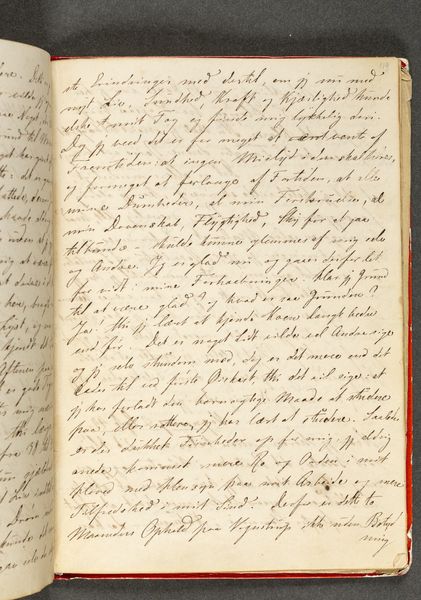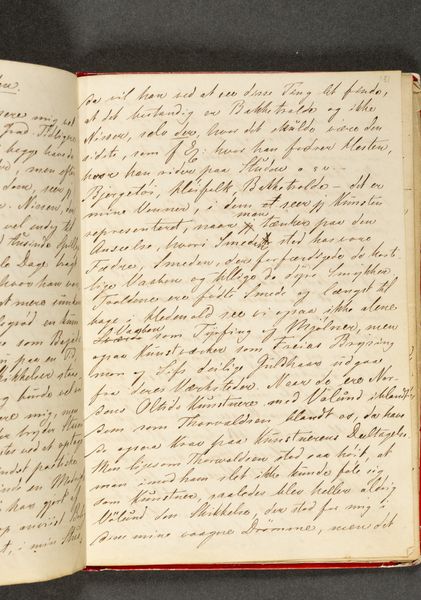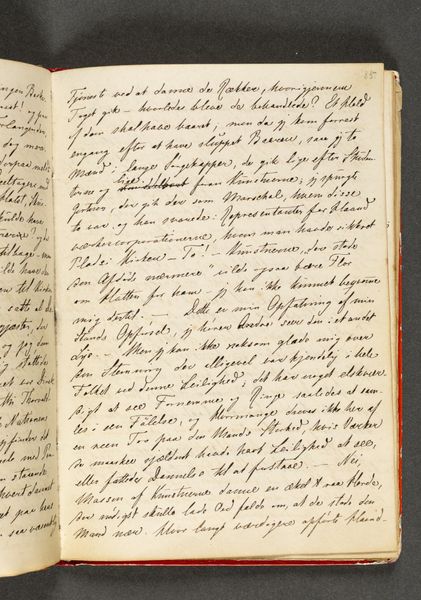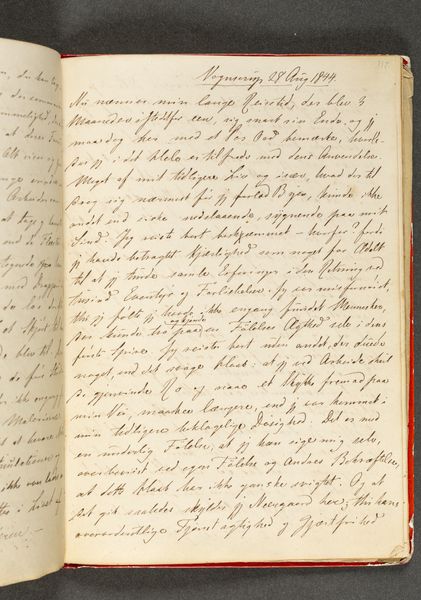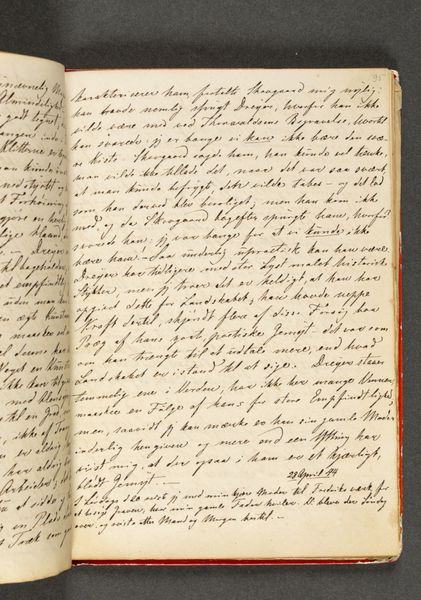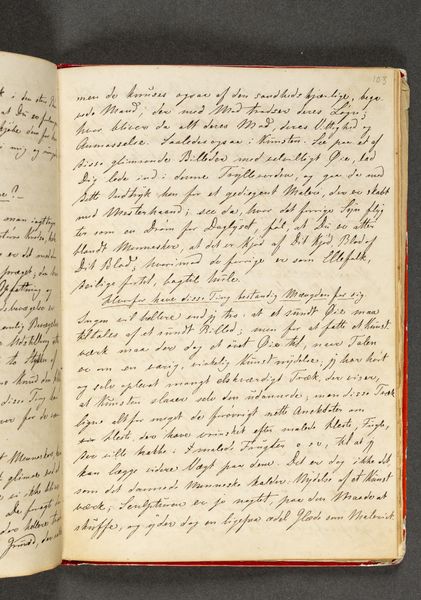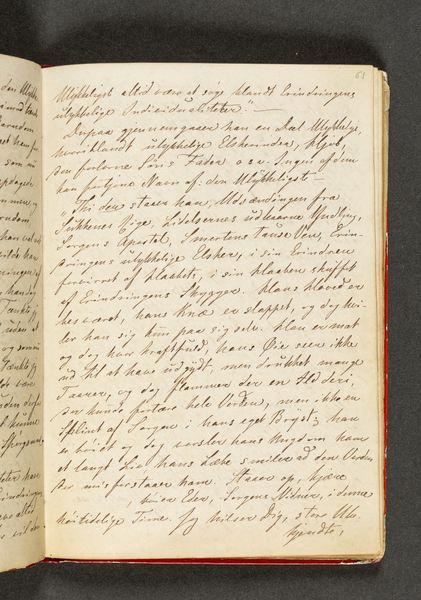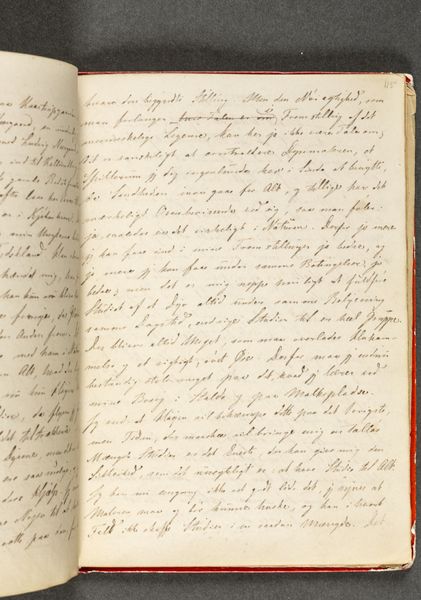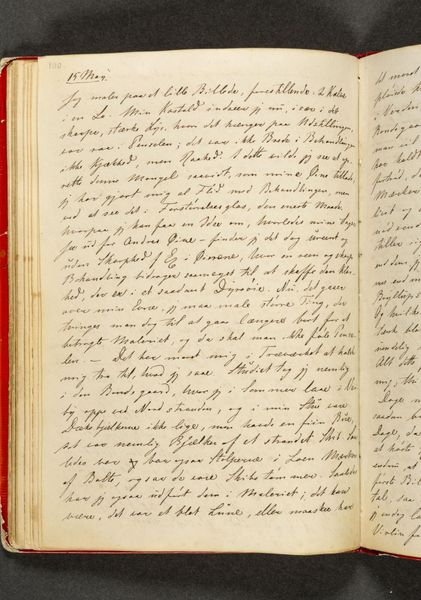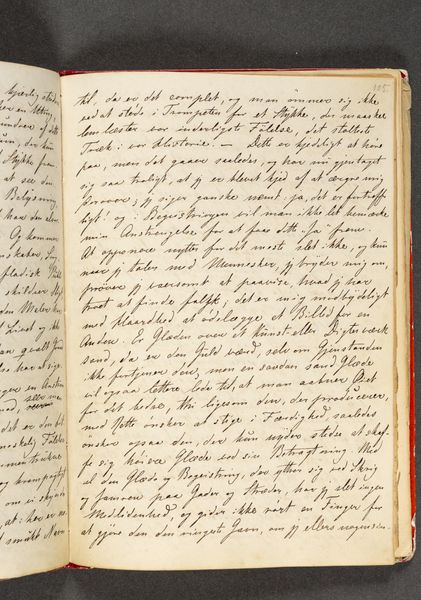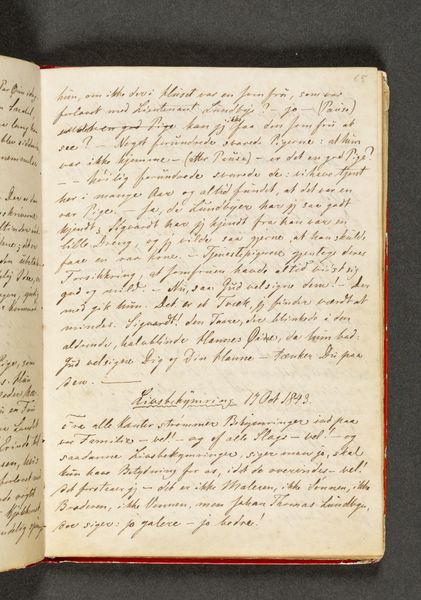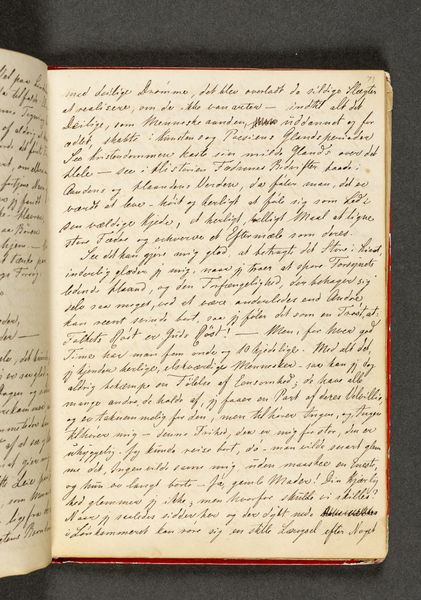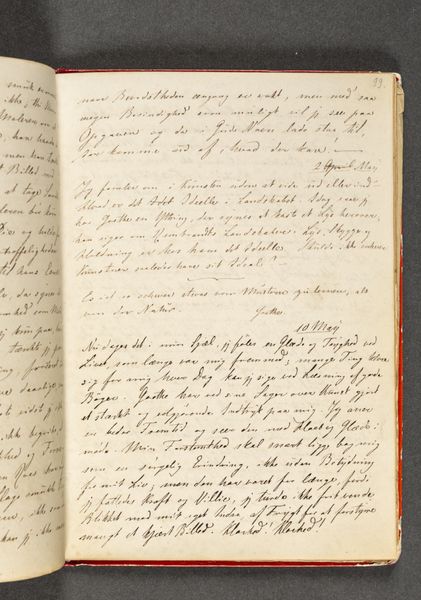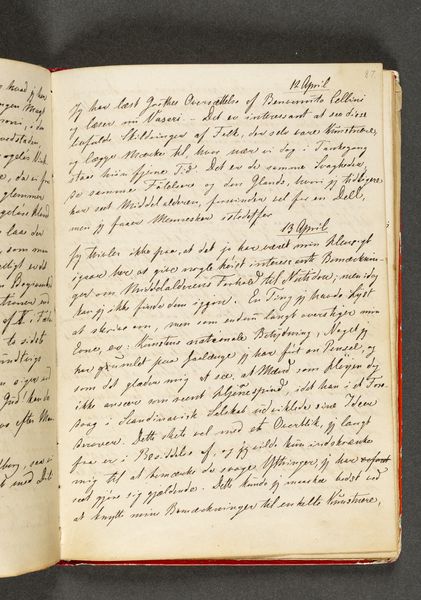
drawing, paper, ink
#
drawing
#
sketch book
#
paper
#
ink
#
journal
#
romanticism
Dimensions: 192 mm (height) x 133 mm (width) (bladmaal)
Editor: So, this is "Dagbog. Side 121," or "Diary, Page 121" by Johan Thomas Lundbye, from 1844. It looks to be ink on paper, part of a sketchbook. I'm immediately struck by how intimate and personal it feels, just a glimpse into someone’s thoughts. What do you see in this piece? Curator: This diary page is fascinating as a cultural artifact. Look at the handwriting – so meticulous, so different from our modern scrawl. The diary as an object becomes a repository of memory, a symbolic container holding Lundbye's perceptions of his world. Editor: Like a time capsule! Do you think the act of writing itself carried significance beyond simply recording events? Curator: Absolutely. Writing, especially in this Romantic era, was seen as a way to connect with the inner self, almost a spiritual practice. Each word, each carefully formed letter, functions as an icon representing Lundbye’s state of mind. Think of the very presence of his handwriting – what meaning does it hold now? Editor: That’s so interesting, thinking about how handwriting can symbolize a whole person or even an era. So it's more than just text; it's also a symbolic expression. Curator: Precisely. It embodies Lundbye’s own interpretation of art making and artistic intention. And it can have layers that might require in depth studies. Editor: Wow, I hadn't considered the symbolic weight of the handwriting itself. Thanks!
Comments
No comments
Be the first to comment and join the conversation on the ultimate creative platform.
